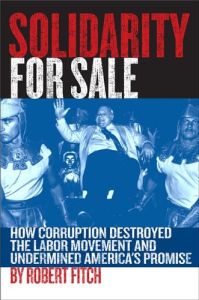Join getAbstract to access the summary!

Join getAbstract to access the summary!
Robert Fitch
Solidarity For Sale
How Corruption Destroyed the Labor Movement and Undermined America's Promise
Public Affairs, 2006
What's inside?
The biggest obstacle to labor solidarity is union corruption.
Recommendation
getAbstract believes that this gripping, reportorial book will intrigue anyone who is interested in American politics, the labor movement, or social and economic reform. Robert Fitch catalogs trade unions' alleged crimes of corruption, while showing how their organizational structure makes corruption all but inevitable. If you think the U.S. labor movement had only noble origins, it is instructive to reflect on the thugs Fitch says loom so large in its early history. And, if you believe that union corruption belongs to the past, it is salutary to discover how profound and pervasive it is in today's unions, at least, according to this reporter. Fitch strongly explains why he feels union corruption is not just a labor issue, but is a disease that harms society-at-large in many ways, amply explored herein.
Summary
About the Author
At age 15, Robert Fitch joined the Laborers Union, Local 5, in Chicago Heights, Illinois. He eventually traded his shovel for a briefcase and has since taught at Cornell and New York University, organized for the unions, and written for The Village Voice, The Baffler, Newsday, The Washington Post, Los Angeles Times and The Nation.
















Comment on this summary